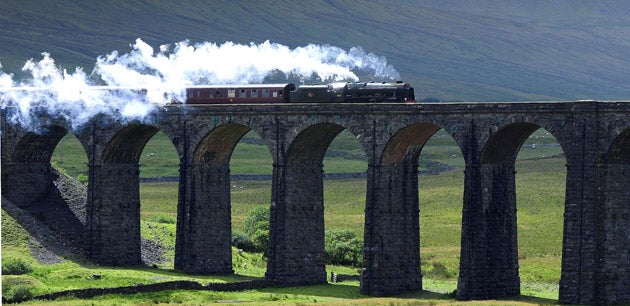Simon Calder: Like clockwork: trains on track for the future

"Complaints" and "trains" are as old as rail travel itself, but here's a new one: in the latest National Rail Trends report from the Office of Rail Regulation, the trains watchdog grumbles it "is unable to publish complaints data for Q1 2009-10", because the train operators failed to send in the information in time. In the next breath, the ORR apologises, in the manner of a station announcer, "for any inconvenience this may cause".
Before you chuckle, groan, or turn to Ben Ross's inspirational (and train-free) report from New Zealand on the next page, a word in defence of Britain's train operators: they are performing better than at any time since privatisation. Between April and June, an average of only one in 11 trains was delayed. A note of qualification: a long-distance service is classed as "late" only if it arrives more than 10 minutes behind schedule, while local trains are counted as "on time" even if they are five minutes late. But the results are the best of the 21st century, with every train operator improving compared with a year earlier. And in the last set of complaints figures to arrive on time, gripes were also at their lowest. As a result, the "public performance measure" stands at its highest since its introduction in 2000.
"Trains may be of the past, but they are still the future," concludes Christian Wolmar in his omniscient new history of the world's railways, Blood, Iron and Gold. He talks of "the rather delicious prospect" that trains might outlive the car: "The oil will run out at some point and as governments recognise it should be rationed carefully, trains may regain their place at the centre of the transport system."
The central proposition of Blood, Iron and Gold is that, since the Liverpool & Manchester first shuttled across North-west England in 1830, the railway has transformed the world overwhelmingly for the better, enhancing everything from diet and employment prospects to cultural exchange and holidays.
The social benefits were recognised early on in a remarkably far-sighted piece of legislation. Early in the Victorian era, the 1844 Railway Regulation Act demanded trains "for the Benefit of the Public", and in particular "the poorer Class of Travellers".
The government stipulated every train company should run at least one train every day (except Sundays, Good Friday and Christmas Day) at a maximum fare of one old penny a mile. In new money, that works out at £1 for the 240-mile run from London to Carnforth in Lancashire.
The train was obliged to average at least 12mph. That corresponds to a maximum of 20 hours for the service linking the capital with the location for Brief Encounter, compared with three hours today (including the now-obligatory change in Preston).
To improve upon the open wagons that often constituted Third Class, passengers also won the right to be "protected from the Weather". Gladstone's government created a no-frills rail service for the masses, with an intriguing stick and carrot: train companies that failed to comply could be fined "Twenty Pounds for every Day during which such Refusal, Neglect or Evasion shall continue", while the good guys paid no tax on earnings from Parliamentary Trains.
ppp British Airways is also achieving record punctuality: in September, seven out of eight planes left early or on the dot. But Wednesday's departure of BA1, the new all-business-class service from London City to New York, was among the one in eight that didn't make it.
An engine fault was to blame – along with traffic congestion in London, because the replacement part had to be despatched by road from the airline's engineering stores at Heathrow.
Travellers are still tangled in red tape
When the Liverpool & Manchester Railway opened, you learn from Christian Wolmar's book, "passengers had to buy tickets a day in advance and provide their age, place of birth and occupation".
Plus ça change: the new rules from Ryanair that took effect this week, are tougher still. Even domestic passengers must check in online four hours to 15 days ahead, and produce a passport.
Queuing up at an airport desk to say that you will, indeed, travel on the flight for which you have a ticket is largely pointless. But the hurdles involved in online check-in seem plain intimidating. You must choose nine pieces of data from drop-down menus; for the nationality fields, the UK pops up uneasily between Switzerland and Afghanistan. Then enter your nine-digit passport number. Get any of these details wrong, and you forfeit £40 – or your flight. For a return trip for a family of four, multiply the complexity, and the possible penalty, by eight.
Subscribe to Independent Premium to bookmark this article
Want to bookmark your favourite articles and stories to read or reference later? Start your Independent Premium subscription today.

Join our commenting forum
Join thought-provoking conversations, follow other Independent readers and see their replies